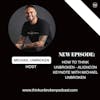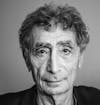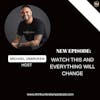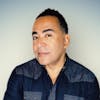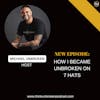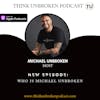The Power of Mind-Body-Spirit Symbiosis in Achieving Growth and Development
Looking to unlock your full potential? In this episode, join host Michael Unbroken as he speaks with hypnotherapist Tatiana Vilarea about the power of recognizing and overcoming emotional blocks through hypnotherapy... See show notes at: https://www.thinkunbrokenpodcast.com/the-power-of-mind-body-spirit-symbiosis-in-achieving-growth-and-development/#show-notes
Looking to unlock your full potential? In this episode, join host Michael Unbroken as he speaks with hypnotherapist Tatiana Vilarea about the power of recognizing and overcoming emotional blocks through hypnotherapy. Discover how the conscious and subconscious mind can work together to create effective change in your life. Plus, hear from attachment style expert Virginia Dixon on the importance of understanding the relationships between your spirit, body, and soul. And finally, listen with music therapist Tim Ringgold about his journey through grief and loss, and how he found healing through community and connection. With insightful conversations and powerful stories, this episode is not to be missed. Tune in now for a thought-provoking and inspiring conversation that will leave you feeling empowered and motivated.
************* LINKS & RESOURCES *************
Learn how to heal and overcome childhood trauma, narcissistic abuse, ptsd, cptsd, higher ACE scores, anxiety, depression, and mental health issues and illness. Learn tools that therapists, trauma coaches, mindset leaders, neuroscientists, and researchers use to help people heal and recover from mental health problems. Discover real and practical advice and guidance for how to understand and overcome childhood trauma, abuse, and narc abuse mental trauma. Heal your body and mind, stop limiting beliefs, end self-sabotage, and become the HERO of your own story.
Join our FREE COMMUNITY as a member of the Unbroken Nation: https://www.thinkunbrokenacademy.com/share/AEGok414shubQSzq?utm_source=manual
Download the first three chapters of the Award-Winning Book Think Unbroken: Understanding and Overcoming Childhood Trauma: https://book.thinkunbroken.com/
Join the Think Unbroken Trauma Transformation Course: https://coaching.thinkunbroken.com/
@Michael Unbroken: https://www.instagram.com/michaelunbroken/
Follow us on TikTok: https://www.tiktok.com/@michaelunbroken
Learn more at https://www.thinkunbrokenpodcast.com
Support the Podcast: Become a listed sponsor!
Follow me on Instagram @MichaelUnbroken
Learn more about coaching at https://coaching.thinkunbroken.com
Get your FREE copy of my #1 Best-Selling Book Think Unbroken: https://book.thinkunbroken.com/
Unlocking Emotional Blocks through Hypnotherapy: A Conversation with Tatiana Vilarea
Michael: One of the things I'm curious about so as you're this and you're working with people and you're trying to help them go through this shift and changing and understanding it's not simply just mindset but it's all these other parameters like what does that look like? How do you dive into, I guess the way that it would phrase it as you know how do you get dive into the body memory first? What is the approach? Where do you step into emotional healing versus the mind where does conscientious just work come to play in all of this?
Tatiana: Well I always combine I do believe that first step is the self awareness, so I always combine it with coaching. My goal is to teach in person to be an expert in who they are, not to just have a quantum diagnosis session let's say we try an absolutely blown with the results from those sessions, from a personal life on my clients these are my favorite type of sessions. But if we have a spontaneous change in remission can the client replicate it the answer is no, because they don't know what happened. So, I always teach the clients to know what drives their life. I work with a concept that I developed so which I call life scenarios these are those scenarios that we unconsciously play out most of them are transitionally created and we absorb them all without any analytical filtering because it happened in trial, we did not have analytical filtering so it goes right in and it they become all like scripts, right? And I have eight of them that I work with for entrepreneurs in about fourteen, fifteen of them overall.
So, this is a conscious thing and then I combine it with a body memory and so the tools are very diverse I've collected them for a few years now. No session is the same but overall I believe that if we listen to the body and if we we really trace some track patterns and what happens to the body for example when we are as an entrepreneur on a sales call that was terrified of sales and I thought I hated sales it was not the case but that's what I thought and this is what most people think, right? The trauma about money and all that state upon safety makes us have either even a version to money or we judge and we think consciously, oh, we want become millionaires but then we have so many unconscious blocks and the body is terrified, that's why a lot of people think that they have fear failure but they have fear of success. They literally terrified in their bodies in their neurological system of that wealth and success and being known and being seen.
So backs to the tools, the body shows everything because the body holds an emotional charge and if I use the language that both the body of the subconscious mind can understand then well it gets released. And for example when a client had problem with sales calls for with this ability avoiding publishing a book, procrastination all of that or avoiding reaching out so they will have a client to them. But they will drag and delay it that's self sabotage because they know well if they respond they will start getting client, they will start being visible and it's dangerous for the body and unless we release the perceived danger that lives in our bodies memory, cellular memory and neurological memory and your chemical memory well we're trying to will power through.
Michael: I'm very curious about this and I think a lot of people listening will be as well. When you talk about feeling like there's danger in the body and that being the thing that's blocking like what does that look like, where are the signs to understand whether or not that's happening. How do you bring acknowledgment and associate that because I agree with you I've experienced that myself and I've been teaching people for quite a while and especially when they get into to coaching with me about this concept that they're scared of success because of so many of the things that lead up to this moment? How do you help somebody identify that and more so when they're with you and they're going through this process and you're bringing attention to this for them, how do you help them navigate it?
Tatiana: Great questions, thank you so much. Do you mind if I use an example of a particular client? So for example working with a woman who is an entrepreneur very driven, she has the purpose, she knows it, she thinks about it every waking moment of her life, she has tried all the mindset based modalities in other words she invested heavily she understands that she needs to invest in herself to get results in terms of she needs that someone dragging her through the blind spots, right? So she's tried all the mindset work and the business strategy and that's what a lot of entrepreneurs do. We have heavily invest in those strategy and marketing tools instead of going to the route first and then all the strategy and implementation becomes easy because otherwise if the root is not resolved we will be learning strategies and know all about it in theory but we'll be resisting, right? So that was the case for her and she thought she had an issue with that mindset and when we started working together, not from the first session because there are certain layers that have to be removed before that because healing is a structured process we cannot get the skip steps or the psyche would not even allow us to get to that road cause to that bottom to the real issue of the problem. So, that's why I work on a four month basis, right? Both with the coaching and the chemotherapy combined. So what we discover is that when she was young she had a really traumatic episode with her family. When they were quite well off, financial situation changed drastically they lost money that was criminal activity involved they not only they lost everything, turns out she was scared for her life and her family's life; in her body, money and having wealth being visible for that wealth forever became associated. Yes of course in rate, yes of course in the mind, but as a child she spent sleepless nights being afraid that somebody's gonna break into the house where they live and kill them all or take their family away, no matter how much she tried to work with that conscious level and read the self help box and know what million your mindset is, she wasn't hitting past that ceiling, she had the enough feeling. She always had enough but she could not break through to more because that means that in our body it's equal to danger or death even or loss.
When we address that everything changed and then she started using all that strategy and all the marketing that she invested in she knew what she was supposed to do, so now she combined it all and she would you know went off to create the success that she thought she wanted but she was walking all along.
Michael: Yeah. And I think that's such a really indicative way of looking at the reality that we are the sum total of all of our experience is leading up to this moment and that means that everything that's ever happened to us in our life and forms who we are and I hate to say it but I know that there are people listening right now who they're hearing this and like yeah but that thing that happened it doesn't really bother me. And what I'd love for you to talk about is how do you work through with people where they're like yeah, but that thing's not a big deal, yeah, that thing doesn't matter. But like from the coaching perspective we're looking at you're like no but you're not hearing what your actually saying right now, I'd love for you to talk about that.
Tatiana: And this happens all the time especially with very analytical people because the reason we become so analytical in intellectual I'm gonna be the first one to raise my hand I used to be control freak who was super like mine in my mind everything believes it or not and now I'm saying well if we actually treat the body really is the body the mindset of adjust, it's quite a change, right? So we happens all the time and my clients not secretly quite out loud called me the queen of working with resistance because I actually don't work with resistance name like the regular way how a coaching would work with it because I don't try to reason an explain to them what they're missing. I go in the session and I show them and we find the spot they feel it all they cry it out, release it out, I guide them through this process and then it's kind of like oh, it's been there all alone. And another thing that kind of like was not a question but it implies a question, how do people recognize; how do we recognize that there is a block? Well if we wanna reach a certain goal; professional goal, personal goal, relationship, meeting that unicorn partner but we have not achieve that yet, we don't have that thing yet that means only one thing the roadblocks within us and certain un learned lessons within us which was stopping us from having it because if we didn't have them if we were as well okay not it doesn't bother me yeah it happened but it doesn't bother me but it lives on the body and it does keep us unknowingly from that dream so we think consciously we won't one so much. And so yeah if we didn't achieve it, if it's not in our life that means it's affecting us and the sooner we dive in and the sooner we release it the faster our life will change.
Exploring the Connection Between Mind, Body, and Spirit with Virginia Dixon
Michael: One of the things I think is important and not necessarily just whether or not, it's in therapy or prescription drugs or anything but life in general is like trying to understand your core values when it comes to healing because I think killing is all these three elements that you talked about. How does one understand, what it is that they know and what they're trying to understand who they are and their core values?
Virginia: It's a great question. There's three stories that I believe we're always trying to negotiate and this is what I've observed from working with patients specifically cancer patients. There's three stories, were always trying to negotiate and that's story that of design, right? Laws of nature, things that are self-evident and speak to our natural affections, there's this story that says something inside of me wants to live, right? And we have an anatomy that bear was witness of that and then there's a story that we tell ourselves from our experiences in our soul, our mind, our heart, our will, our conscience, our feelings there's that narrative, we're always trying to negotiate and then there's a story that we carry in our DNA.
Our stories, don't begin at home, they begin in the home of the home of the home, of our parent’s, parent’s, parents.
So three, for generations deep there is a work of recall healing and Dr. Hammer from German new medicine expounded upon by. Dr. Gilbert Renauld recall healing, that really speaks in powerful ways to that. So there's a story of are very constitution, substantiated, and well, explained by laws of nature, things that are self evident again and speak to our natural affection.
There's a stories, we tell ourselves from our experiences and the ideas and the thoughts that we got from our families of origin in our experiences, by the way, starting from conception, right? And in the womb, and our first formative years of life and throughout and then the stories of our anatomies and I think reconciling those three stories is where we find incredible freedom.
For example, with you, Michael something in you knew intuitively that I don't know, this isn't right. So you used all kinds of means and methods, right? And resources to silence that, to mitigate that, to reconcile that and they weren't productive. So, at some point, you decided you know what? This is not for me, so I'm going to just bring it into it all and somehow as providence would have it. You know, you weren't successful in that attempt, call it whatever you want, divine intervention, chance, accident, I think it's because look what you're doing now. I think it was divine intervention personally, but then you have the reality of the heritage that you bring to bear, and that legitimate experiences that are in your issues; the issues are always in the tissue, right? And that are very real and the disparity between this hunger of your soul, this thing of what's happening in my life, right? That you're negotiating through these experiences, you have and the trauma that you're bringing in from these generational patterns, right?
The disparity between those things is where we find the anatomy of disease and addictions, and all these things. So, what happened, at some point, you reached bottom and I love how you address that and you talk about the reaching rock bottom, that rock bottom is really a beautiful and wonderful and great place to be and we were talking about this a little bit ago because there's nowhere else to go but up, if you can just accept that hey, this is rock bottom for me whatever that is for you individual or if listening audience if you can recognize, hey, there's only one other place I can go from here and that's up, right? Because I can't get any lower than this, we all have different margins, right? But then you begin to decide, you begin to choose, you begin to dig, you begin to learn, you begin to turn every stone, you begin to reach out, like you were talking about earlier, looking for mentors, looking for information. We have the web now, we have the internet, we have YouTube, we have amazing resources at our disposal, we have amazing counseling, amazing podcast to listen to, so there is no excuse, why we have to give in to disparity of whatever situation we find ourselves in. Nobody takes our life from us, we give it away.
Michael: Yeah. I have this thought just this question just popped into mind. What do you think is the biggest misnomer or misconception that people have about their own Mental Health?
Virginia: That it's inherited, that there's no way out without medication, that they're the victims of circumstances. I think the most tragic bit of information that people believe are the lies of why they find themselves in the situation's they find themselves. I think people don't realize how powerful they are. I think people do not understand that, thoughts have power and words, have authority. It's one thing to have thoughts that are limited, but it's another thing to begin to speak them into being. Words have power, thoughts have power, words have authority. We have to be very careful about the things we speak, we're better off asking questions, seeking information to get us out of situations that we find ourselves in. Then we are to get together with a friend over a beer or glass of wine and continue to complain or we have very sophisticated ways of complaining, right? Fancy and sophisticated ways of complaining but it's tragic because those would seem like nominal conversations or relatively insignificant, just shooting the breeze with somebody, they have devastating consequences in your entire constitution and in your life.
Michael: How do you show them? I hear what you're saying. How do you reconcile the thought pattern of well, my mother was bipolar, and my father was bipolar? And so that thus means I must be a bipolar and then you add on all of the extra extremities of the world that we live in and being in a fear-based society and all the things that lead to this place where I feel like people have lost the ability to freely decide by the person that they are and dealing with and that's not to be disparaging so I want to be very clear, it's very much about this conversation of our people just lying to themselves to the point that even though they could have a thought that maybe it's not true, that all of that stuff has led to where they are, they're more comfortable, and living in the lie. Does that make sense to you?
Virginia: Completely, and I think one third. Look, we're spirit working through a soul and a body, we have three constituents, right? That's our image. Our identity we get from design because everything in your body is working to live, your brain is working very hard like we said earlier to sustain your life, right? So there's something in our design that wants life and wants to sustain life, and is designed and created to sustain our life, that's our body, right? So there's that story, but then there's a story of our mom and our dad, and our ancestors, and I've observed that often times 1/3 of the equation, gets 100% of the responsibility. So there's this beautiful intricate design that makes us makes up who we are, there's this amazing mother and father that we have lot is a maybe they gave us life and I find that more often than not, our life tends to be a little bit better most of the time then there's was even though it was lacking, right? I mean your mom didn't abort, you, your mom gave you life and yes, she was out of her mind with drugs and all kinds of things like that, which I'd like to address that briefly in ways that perhaps her a little bit unconventional to bring in the spiritual constitution of drug use and drug abuse and the spiritual element that brings into a dynamic, right? I want to address that and in a little bit, but you have the design, so you have your image, spiritual body, you have your identity, which you get from this design, this intricate design, that makes up who we are then there's the story of mom and there's a story of dad and then the story of our ancestors. And I just find sometimes we know very little about our ancestors and our parents but one-third of the equation, gets 100% of the responsibility. And so we give away so much power and not understanding the incredible power of the design of the image we bear and the identity that we have work for fitting all of our identity to one-third of the equation and then it affects the purpose that meaning the value in our life. So one of the things that I think is imperative is to understand, don't oversimplify things, we're very complex beings and even the narrative of our lives and of our stories, those are complex is like a giant, jigsaw puzzle. There may be a lot of pain, a lot of tragedy and a lot of heartache in it, but there's a mystery in all of this too. And for some reason here I am in time and in spite of all these dynamics and in spite of my ignorance and in spite of the brokenness I come from something inside of me, since I want life and I want to live and I want peace, right? So I help people understand well, three things. How do you love? What's your attachment style? What are the hangers that drive you? And then hey, let's study and know and understand all these pieces I said make up who you are. So there's all these moving parts that I try to bring into focus for people so they can feel hope and excessing greater measures of freedom. And of course, Michael, I don't know if you're aware of or not, but I use biofeedback technology, I use ecosystems to see what's happening in a person's brain. I really start with the confusion, the chaos and disses that a person's caring and their anatomy, right? Why? So I can have access to their soul? So I do go after decompressing, the central nervous system in order to access those deeper, narratives in a person's soul so I can peel back the layers of where they confusion, the chaos that they find themselves in and bring them and give them a path into freedom.
Healing Through Grief and Connection: A Conversation with Tim Ringgold, Music Therapist and Speaker
Michael: If you change the relationship you have with death, you will change the way that you live your life, and the reason why I believe that is because I have faced death multiple times.
Once when I was young, I even had an asthma attack and next thing, you know, I flat lined and I woke up on on a surgeon's table. You know, it's one of those things where I constantly think about it, and I think it can also be a driver for like overkill, right? Where suddenly you're just going to hard, but how do you start to? Because there is so many factors on so many layers and so many variables in the way that we deal with death and the way that impacts us, in the way that impacts our livelihood, our communities, our families and yet, like many things in life there's no play book, there's no rulebook, there's no this is maybe what you should try and how do you start to tap into the emotional awareness that you have when you have experienced a death close to you in a way that it now has impacted you?
Tim: Yeah. You know, I think that for me and one of the things that we share on the retreat and when I say we it was my mom, another retired therapist in me for like 20 retreats or so, and now I'm the solo leader of this retreat. So I still speak in the first person plural, but even though it's just me, feel like Abraham Hicks right now. We really like to help people understand a couple of things, one is that grief as an emotion is a normal and natural response to loss, and I think that phrase normal and natural is something that we the culture because you touched on it, when you said, you know, Americans and westerners our culture tells a different story that it's not normal, it's not natural, it's a loss. We use negative language around it all the time and yet it's very normal and very natural, death is very normal and natural, grief is very normal, very natural, not something to be avoided, something to just be experienced, but we live in a culture that's based on convenience and comfort.
So if you live in a comfort convenient culture, the experience of grief is dissonant with that cultural current doesn't fit. So then we just try to avoid it as much as possible and it's not really sexy to tell people, Hey, listen, you gotta, you know, lean into this feeling, and really if you want to heal it, clichés are useful because we remember them, but if you want to heal it, you got to feel it, it's there's really no back door, there's no side won't go any way around it, you just got to lean in and experience that one of the things I try to explain to people, if you think about energy as a waveform energy as a wave, so energy, everything being energy, everything, therefore being waves of that of high points peaks trough, speaks troughs, if you want to experience the peaks of love and joy and connection, it's in inedible, you cannot escape the troughs. So if you think of the troughs like sadness or grief or pain, they are part of the same wave. You can't have one, you don't earn the right to experience one without the other, and so you have to really understand as a human being, you get both, it's a package deal. So it's not about avoiding the troughs, it's about understanding their part of the wave, and then what are the best practices that work for the largest number of people and go explore those and then figure out which ones you connect with, and I find that the Mantra exploring connect is extremely useful because each of us have our own personality in our own style, so not everything works for everybody. But if you go explore, you'll find what you connect with.
Michael: And I think that you're spot-on, I share this constantly. If you can't feel the full range of emotions, you won't feel any of them, and that's was my experience for a long time. And I thought, honestly, Tim and I've said this before, I thought it was a sociopath because I didn't cry, I learned how to turn it off. I didn't cry for 15 years and now it's like a Nike commercial, come on, and I'm over here like Baldwin, right? But it took so much to be able to get to that place, and a huge part of it was obviously therapy and personal development and things of that nature. But the other factor the variable that I think played the greatest role that I do not believe is talked about enough was Community being in connection with other people who were experiencing these things, who had the ability for lack of a better term to mirror force, I've been there. Can you talk about the power of community in this process?
Tim: Yeah, I think connection is probably the single most useful thing as a human being to aspire to, as mammals were pack animals. So we live in inter, you know, personal relationships, we are interdependent, we are being human as a shared experience from cradle to grave, we're not like bears, like we don't go off and live in solitude, we live in relationship. So it's really useful to always be having an eye on this sense of connection first to your body, then to your mind, then to your community, then to some sort of power that you assign greater than yourself.
For me, if you keep your eye on those four pillars, it's a game changer. If you take any one of them out diminished the results, so if you can keep your eye on that's going to be a game changer for you, and it's there's a gentleman named Dr. Alan Wolfelt, it's kind of unusual, last name Wolfelt and is a kind of an expert in the grief space, published a million amazing books, retreats trainings, and he has this concept called companioning, I think this is really useful to share.
Companioning is like, when you have a companion, it's like, someone who's like walking along beside you, they're not walking in front of you, they're not walking behind you, they're not carrying you, they're just walking beside you. And I love in like classic western movie genre, you'll see the hero is riding his horse and there's a side shot of the hero riding his horse, and then some other person rolls up and their profile, just cuts into the shot, and now there are two and they don't say anything, they just look at each other and they nod and I'll have to say anything.
There is an understanding in that moment that whatever the struggle is that they're writing towards, they're going into it together and suddenly they're not to there somehow more than two that connection creates this kind of synergy between them. And the grief process is the same way and I find anybody who's been through any kind of experience, when you find others who get it, you don't have to justify or educate. And I think that is an exhausting process for people as they're trying to heal to either justify or educate. I'm busy trying to heal that is enough. I need people around me where I can just be healing and not having to justify or educate and that's what community provides.
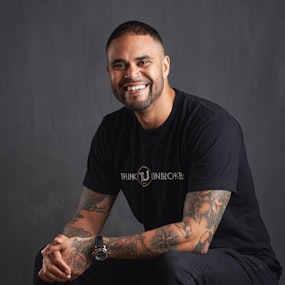
Michael Unbroken
Coach
Michael is an entrepreneur, best-selling author, speaker, coach, and advocate for adult survivors of childhood trauma.
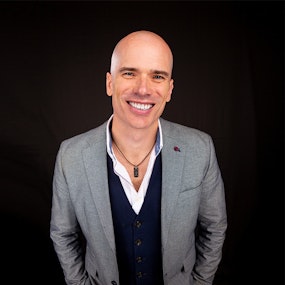
Tim Ringgold
Author
Tim Ringgold is a board-certified music therapist, author, and host of the Reduce Your Stress podcast and Summit. Tim is also an award-winning international speaker, having shared the stage with some of the top minds on music, the brain, and personal development, including Tony Robbins. Tim was the first person to give a TEDx talk on music therapy in 2012 and is a former Regional President of the American Music Therapy Association.
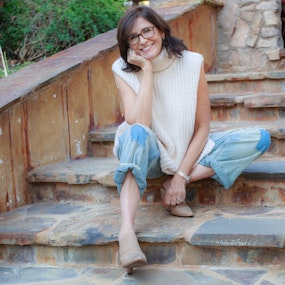
Virginia Dixon
Author / CEO / Discipleship Counselor/ Educator / Mom
The R.E.S.T.™ with Virginia Dixon Podcast features numerous resources, authentic client stories and experts in various disciplines to provide each listener practical tools for their own journey to freedom and healing. Confusion often leads to chaos and dis-ease, causing imbalances that lead to illness infecting the body, soul and spirit. Therefore, learning how to reason and reconcile unresolved emotional conflicts within yourself and others is imperative to find R.E.S.T.™ (Relational, Emotional and Spiritual Truth) and establish clarity, order and ease. Years of working in the field of neuroscience technology as well as collaborating with medical practitioners while serving as the Director of Inner Healing at both the Center for New Medicine and Cancer Center for Healing, strengthened Virginia's commitment to help those she serves find increasing measures of freedom, reconciliation and transformation.
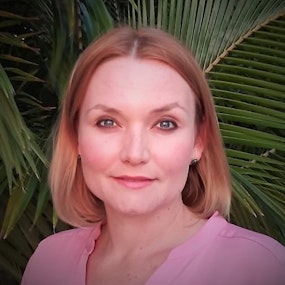
Tatiana Vilarea
hypnotherapy specialist, intuitive, coach
Tatiana is a trauma-integrative hypnotherapist, intuitive and coach who helps purpose-driven entrepreneurs release their emotional wounds and trauma, so they can overcome deep-seated inner blocks and get to the emotional and mental freedom they need in order to achieve their personal and professional goals.
She created a modality that releases stored emotions from the body`s neurological pathways and cellular memory, combining it with subconscious and energy work. Shifting the mind-first paradigm of therapeutic approaches to a body and emotions centered one.
Welcome to The Think Unbroken Podcast!
Here are some of my favorite recent guests!



























